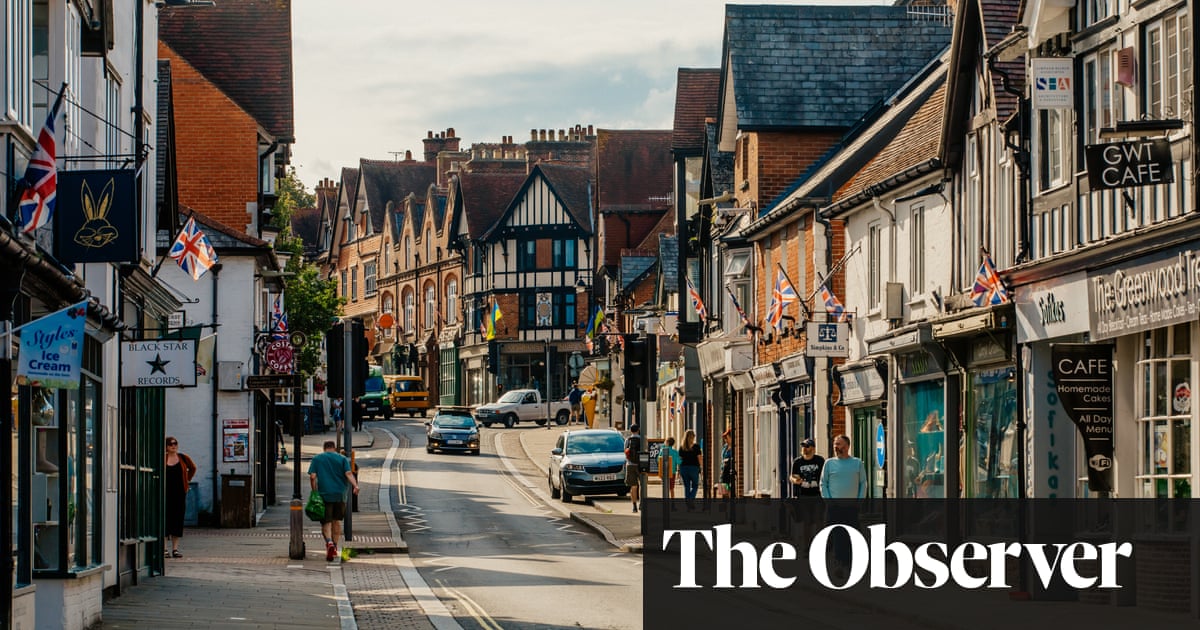
Some rural dwellers in England have turned to vigilantism by attempting to block roads, confront cyclists and erect signs in an effort to deter people from travelling to the countryside for exercise during the lockdown, the Guardian has been told.
The National Rural Crime Network has received reports of “small-scale vigilantism” by some residents growing angry at people driving long distances to the countryside, including beauty spots, for walks or cycle rides. In a worrying development, the organisation’s chair said people had even been “aggressively driving at cyclists”.
Their behaviour has caused concern with those who point out people enjoying the countryside to exercise are not necessarily breaking government rules if they maintain physical distancing, with one police leader warning vigilantes not to take the law into their own hands.
The Guardian has learned of a case in the Lake District where an abusive note was left on the windscreen of a family’s car by a man who also threatened to damage their vehicle after they drove four miles from their home to go for a walk.
The reports come after the National Police Chiefs Council and the National College of Policing issued new advice earlier in the month clarifying that driving to the countryside for walks – where more time is spent walking than travelling – is among a list of reasonable excuses for people leaving their home during the coronavirus lockdown. It followed criticism of perceived heavy-handed examples of policing during the lockdown, including Derbyshire police using drone footage to shame people going to the countryside to walk. Forces have powers to impose £60 fines to people who break lockdown measures.
The National Rural Crime Network, along with the National Farmers’ Union, Countryside Alliance and Country Land and Business Association wrote to the justice secretary on 20 April, calling for an urgent review of the guidance as they highlighted concerns the guidance would “encourage even more people to carry out unnecessarily long journeys to exercise in rural areas, which will in turn put increased pressures on rural police forces and communities”.
Julia Mulligan, the National Rural Crime Network chair who is also the Conservative police, fire and crime commissioner for North Yorkshire, said people travelling to the countryside for exercise was causing anxiety. She told the Guardian: “We’ve had small-scale vigilantism, if you like, so communities blocking off roads, people driving aggressively at cyclists.”
She added: “People have been making it clear that people coming from long distances to enjoy our local beauty spots that are not local to them are not welcome … There have been signs put up, we’ve had people calling cyclists out. All sorts of little things, nothing that is criminal but people really making it clear how anxious they feel.”
But she made clear it was not acceptable for people to be abusive to cyclists. Asked whether she was concerned that those involved in vigilantism may themselves end up falling foul of the law, she said: “Yes, absolutely. And what it’s doing is creating tension in communities. And we don’t want tension – we’ve all got to come out of this the other side of this.”
Separately, a mother-of-two from Cumbria – who does not wish to be named – said her family returned to their car parked on a main road after driving four miles for a walk in the Lake District on 7 April to find an abusive note.
The local man who left the note also threatened to damage their car, the woman said, adding: “I then phoned Cumbria police to check if we were at fault and they assured me we were perfectly at liberty to walk locally and drive a couple of miles to start our walk. Since then we haven’t dared drive from our house and our two kids are quite nervous about meeting anyone.” She declined to press charges against the man. Cumbria police confirmed it offered advice to a woman who called on 7 April asking about walking on the fells.
Paul Griffiths, the Police Superintendents’ Association president, Paul Griffiths, said he did not encourage vigilantism and instead urged people to contact the police.
A NPCC spokeswoman also encouraged people to report concerns to police, adding: “Police forces and the government have rightly continued to advise the public not travel to travel long distances in the car to exercise, and police will use discretion and judgment in deciding what is and what isn’t ‘necessary’ and ‘reasonable’ in the circumstances – being mindful of the purpose of the regulations to prevent transmission of infection. ”
A government spokesperson said: “The overwhelming majority of people are doing the right thing by staying home … The police have the powers to both encourage people and, if necessary, enforce these measures.”












